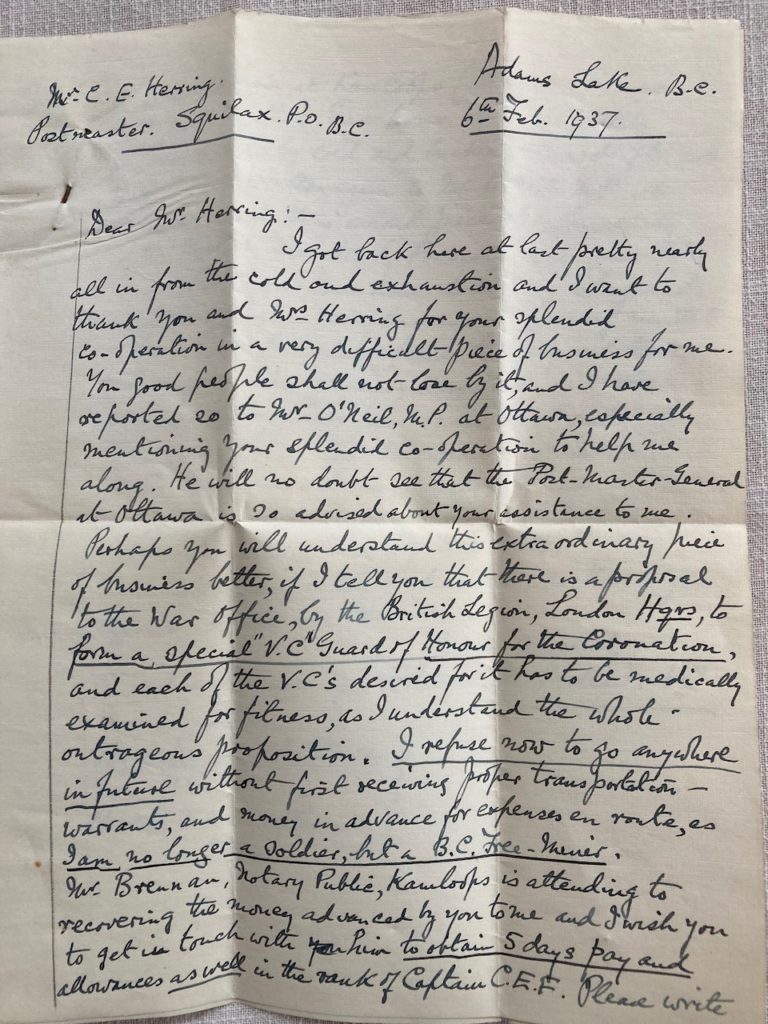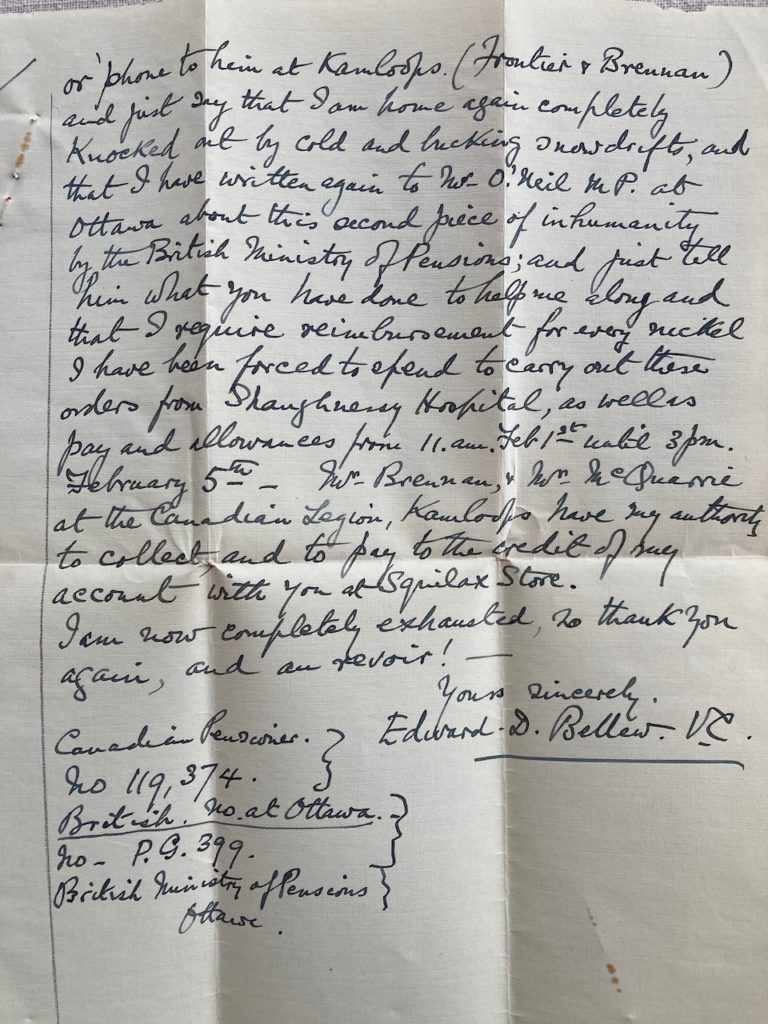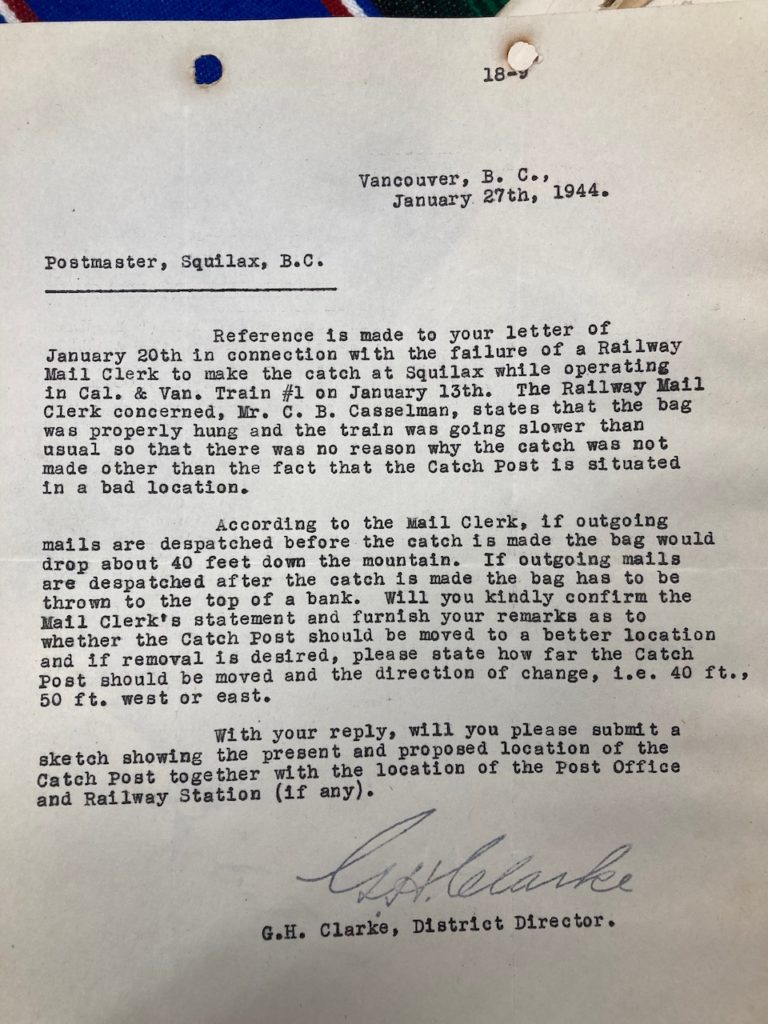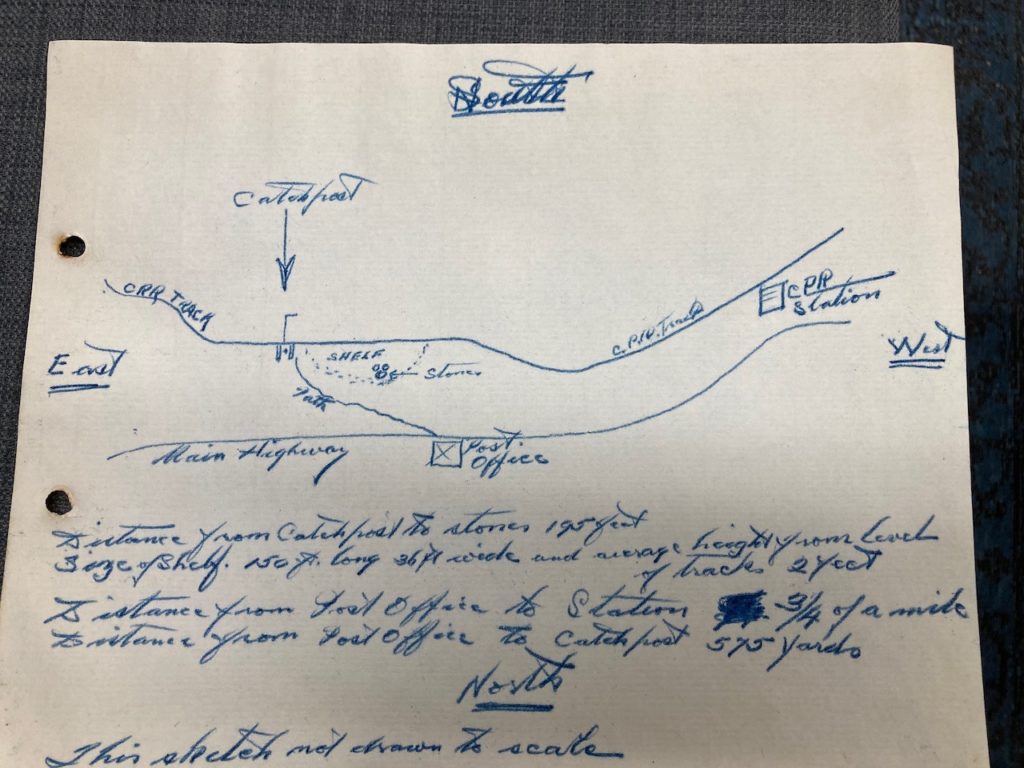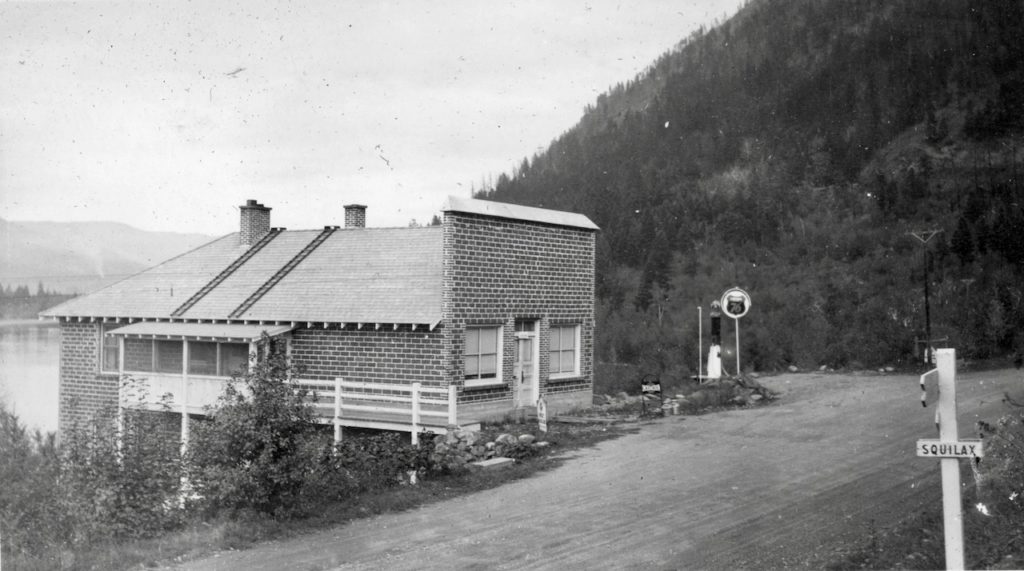
It is not often that original source material about the Shuswap is discovered, thus it was fascinating to find a stack of papers from the old Squilax General Store in an abandoned barn, which had been left there by a now deceased friend who had leased the store nearly four decades ago. Now stained and worn, the papers were in an ancient clipboard and include correspondence between postmaster Clifford Herring and the Postal Service from 1935 to 1959.
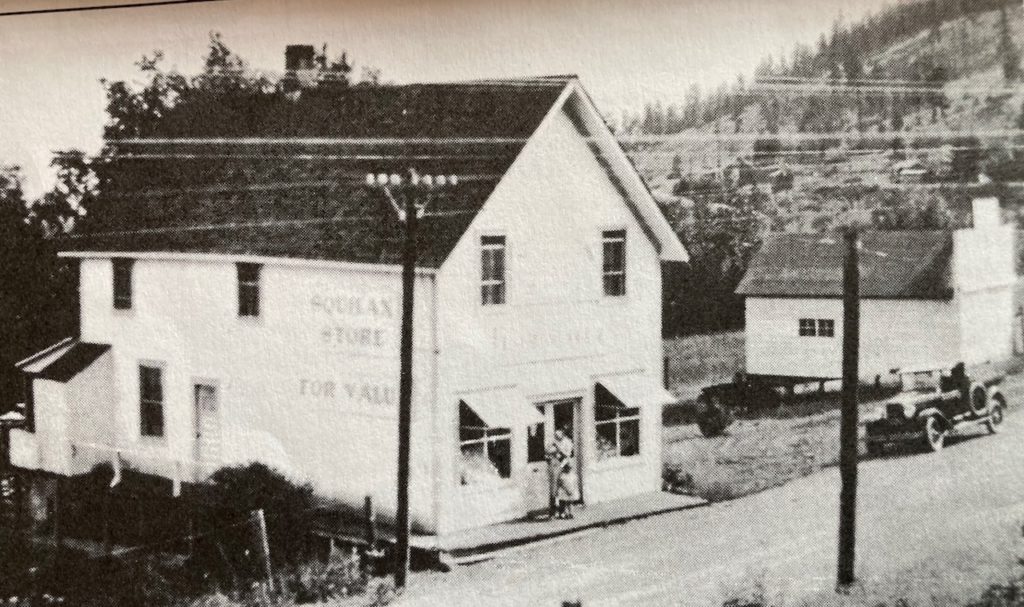
The original Squilax Store was located next to the old CPR station along the tracks about one kilometre west of where the store is now. In 1927, the then storekeeper and postmaster James Craig was murdered, and his widow sold the business to Clifford Herring, who took it over the following year. Seven years later the store burned to the ground and Cliff was able to continue the business by using the garage, while his family moved into the nearby empty schoolhouse.
A new fireproof store made of concrete and bricks was commissioned to be built on a hillside between the new dirt road and the Little River, which was completed in 1936. With the post office, the merchandise and a gas station, the Herrings prospered, and the store became a landmark, as well as a meeting place for community members who gathered to wait for their mail and purchase supplies.
The oldest papers include the documentation required to switch the location of the post office and the “catch post” to the newly built store. For nearly every typed letter from most often the District Superintendent, there is a carbon copy of a handwritten reply from Mr. Herring. One of the postmaster’s duties was to provide a list of all the local citizens receiving mail and their occupations, which included those living in Turtle Valley, Squilax, Lee Creek and Adams Lake. t was not until 1954 that the list included women and at that time there was a total of 64 names.
By far the majority of the correspondence referred to the many problems regarding the use of the “catch post” used for transferring bags of outgoing mail to the moving train and the tossing out of incoming mail bags that became damaged or lost in the snow and bushes. There were complaint letters from disgruntled patrons that resulted in letters from the superintendent that Cliff would then reply to with his reasons for the problems. In one case, the superintendent wrote how the “fingers” holding the bag were turned the wrong way and when the bag was struck by the catcher arm, it swung around and broke the window in the mail car!
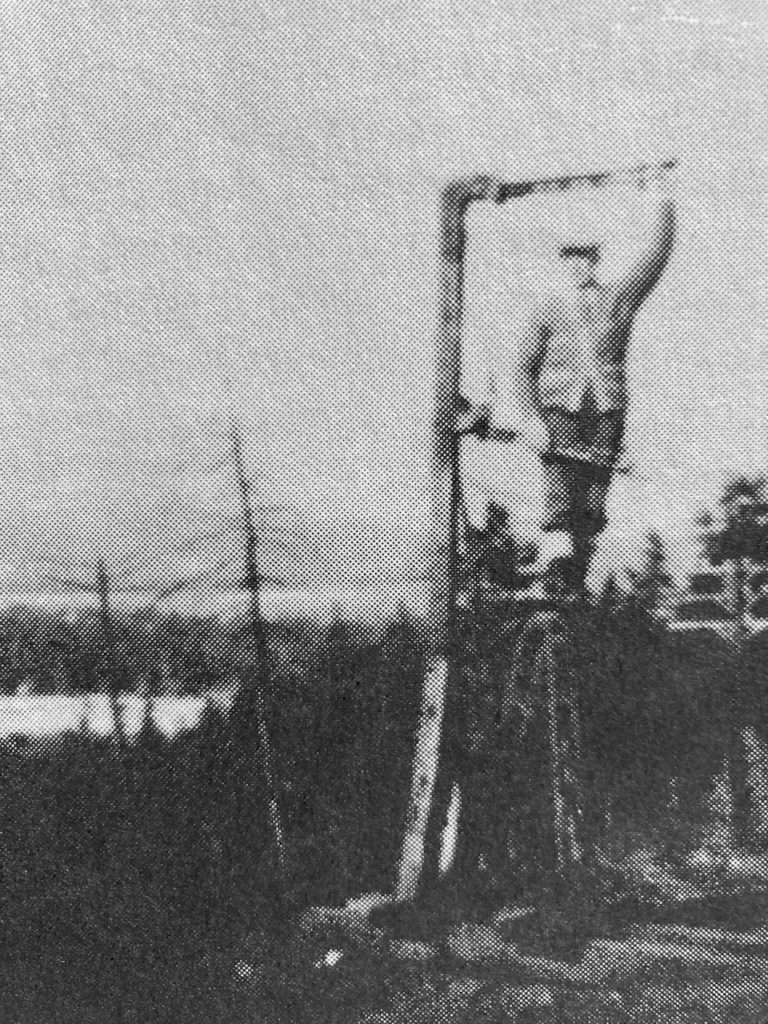
The mail exchange problems were finally solved in 1947, when the train stopped daily at the Squilax Station. Nine years later, after the road was improved, the mail was moved from Kamloops by car. In addition to selling stamps for which they received a commission, the Herrings also sold Canada War Savings Certificates during and after the war.
At the very bottom of the stack of papers was a 1935 letter that Cliff likely saved because he considered it significant (see the letter below). The most prestigious British military medal is the Victoria Cross, which was awarded for gallantry “in the face of the enemy,” and there were only 99 recipients in Canada from 1854 to 1945. Edward Bellew was the only recipient who lived in the B.C. interior, and he resided at Adams Lake. Cliff’s treasured letter was from Bellew, who wrote to praise Cliff for a loan he provided. Bellew also explained how he wrote to the M.P. in Ottawa complementing Cliff with the hope that his good deed would be recognized by the Postmaster General.
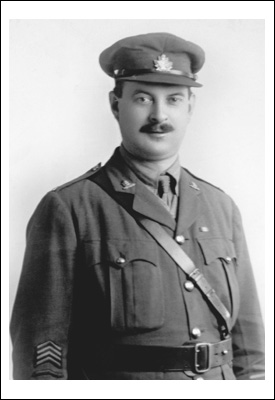
Ironically, Cliff also saved another Bellew letter from 1941 that criticized him about overcharging for fishing line. He wrote how he was “making new arrangements for receiving groceries and supplies here for the future. As I have to get the most for my few dollars, which is an impossibility at your store as its being run at the present time.” Given there were more letters in later years, it appears that Bellew had warmed up to the Herrings again.
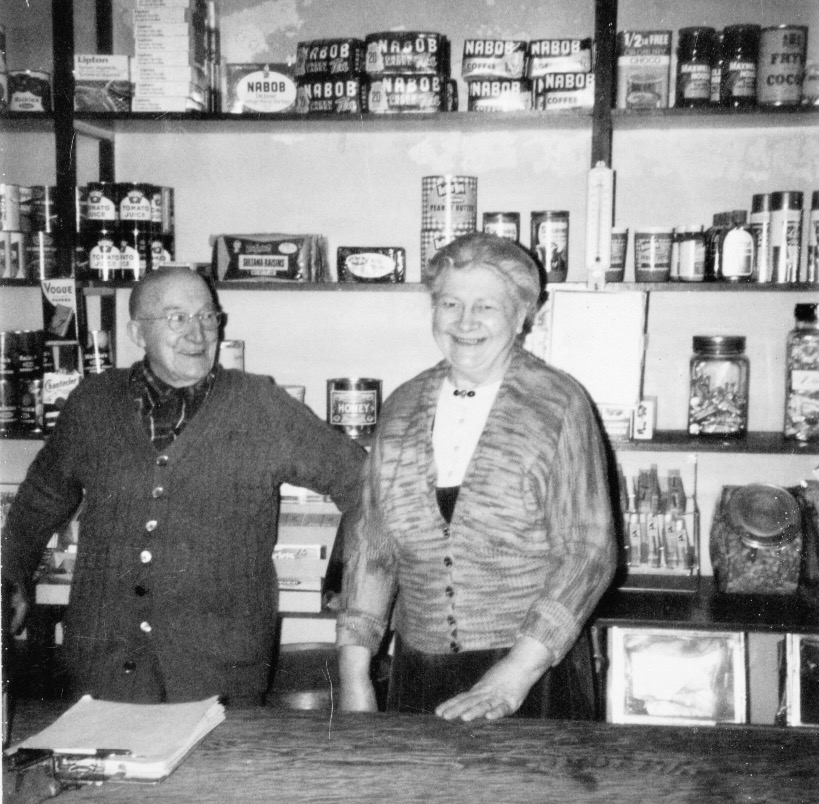
The final correspondence concerned Cliff’s retirement, as in May 1959, he received letter informing him that he could no longer continue as postmaster because he was turning 70 that year. The letter also requested that Cliff find a replacement, noting the preference for persons who have service overseas with the Armed Forces. Cliff wrote back and recommended Mrs. Herring for the position. In the final letter, the District Director advised that the post office was transferred to Mrs. Herring and commended Cliff for his lengthy service that began in 1929.
POSTSCRIPT
I used to pick up supplies at the Squilax General Store over fifty years ago, during my early years at Lee Creek. They sold cheese in bulk and would cut off a section of cheddar with a wire cutter. After a few shopping trips, we became friends and Cliff was always eager to offer advice given that I was a green homesteader. Often, I was invited down to the basement, where many of the hardware items were stored. If I had a question, Wilhelmina would send me down to the storage room or out back to speak with Cliff.
One day, he was busy sawing firewood with his buck saw when I proudly told him how I had recently purchased my first chainsaw and asked him why he did not use one. He replied, “Those power saws are far too dangerous, and I would never use one,” and then he explained how the saws can easily kick back. Thus warned, I was always careful and other than one nick I have never injured myself after felling many trees, cutting hundreds of cords of firewood, and building several log houses.
Although it was nearly 100 years ago, the Squilax murder story still attracts interest, as the murderer was never found. James Craig was 55 years old when he was found shot dead outside the garage door at 4 am on Sept. 27, 1927 (see the garage in the photo above). Police from Kamloops and Chase investigated with the help of a local Secwepemc tracker. Given that James was a known philanderer, there was one theory that his wife shot him and another one blamed the husband of the schoolteacher who apparently he was in bed with that night. Also, James was the local Justice of the Peace and had made enemies in the community, including the local communists whose literature he tried to stop being delivered through the mail service.
It would be good to uncover more stories about the war hero, Edward Bellow, who lived at Adams Lake. From Wikipedia, we learn that his Victoria Cross citation reads: “For most conspicuous bravery and devotion to duty near Keerselaere on 24th April 1915, during the German attack on the Ypres salient. Capt. (then Lieut.) Bellew, as Battalion Machine Gun Officer, had two guns in action on the high ground overlooking Keerselaere. The enemy’s attack broke in full force on the morning of the 24th against the front and right flank of the Battalion – the latter being exposed owing to a gap in the line. The right Company was soon put out of action, but the advance was temporarily stayed by Capt. Bellew, who had sited his guns on the left of the right Company. Reinforcements were sent forward but they in turn were surrounded and destroyed. With the enemy in strength less than 100 yards from him, with no further assistance in sight, and with his rear threatened, Capt. Bellew and Serjt. Peerless, each operating a gun, decided to stay where they were and fight it out. Serjt. Peerless was killed and Capt. Bellew was wounded and fell. Nevertheless, he got up and maintained his fire till ammunition failed and the enemy rushed the position. Capt. Bellew then seized a rifle, smashed his machine gun, and fighting to the last, was taken prisoner.”
Edward was born in Bombay, India in 1882 and educated in England where he attended both Clifton College and the Royal Military College in Sandhurst. He moved to British Columbia where he worked as a harbour construction engineer in New Westminster. He enlisted in 1914 and after the war, he worked as a dredging inspector.
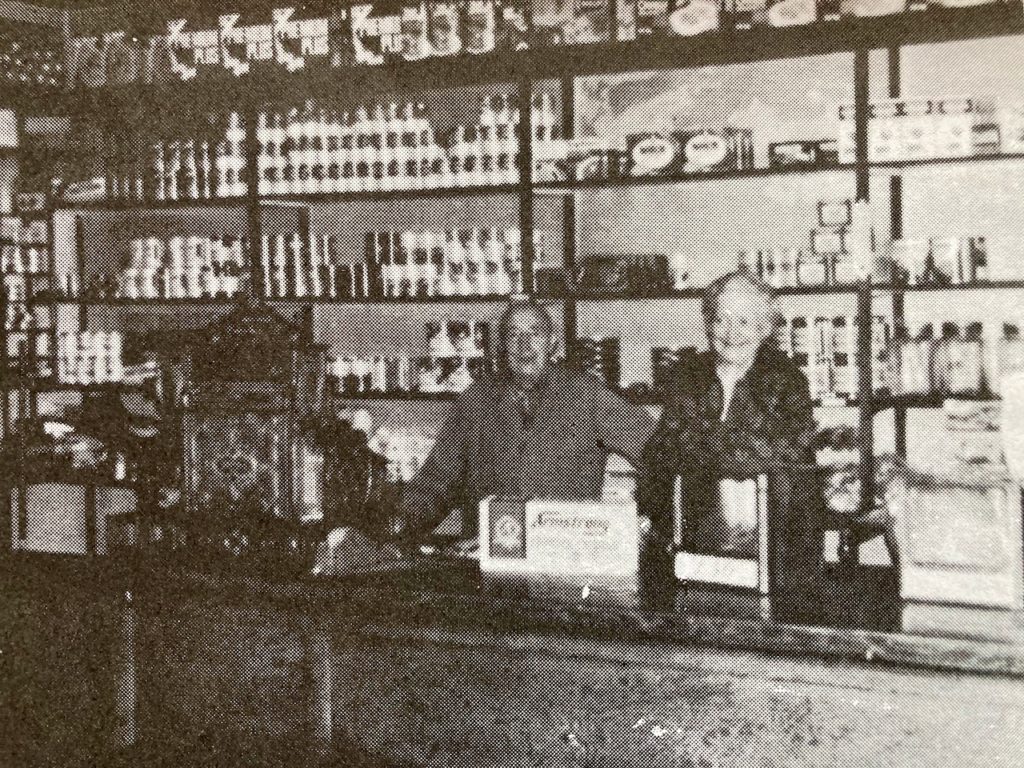
It is likely that Wilhelmina was not the Postmaster for long, as rural routes were created and mail was delivered to local mailboxes in the various communities. The Herrings ran the store until 1982 and they both died the following year. After the store closed, local potters Bruce and Laura Nyeste rented the building, which they operated as a pottery and craft shop for a few years. Another local potter, Lee Rawn and her husband Robbie were the next tenants. After they left, the building was left empty until Blair Acton purchased the property in 1992 and opened the Squilax Store and Hostel. The following year, she added four CN cabooses for her guests to use.

Learn more about the Herrings and the Squilax General Store in Volume 5 of the Shuswap Chronicles.
List of names from 1935:
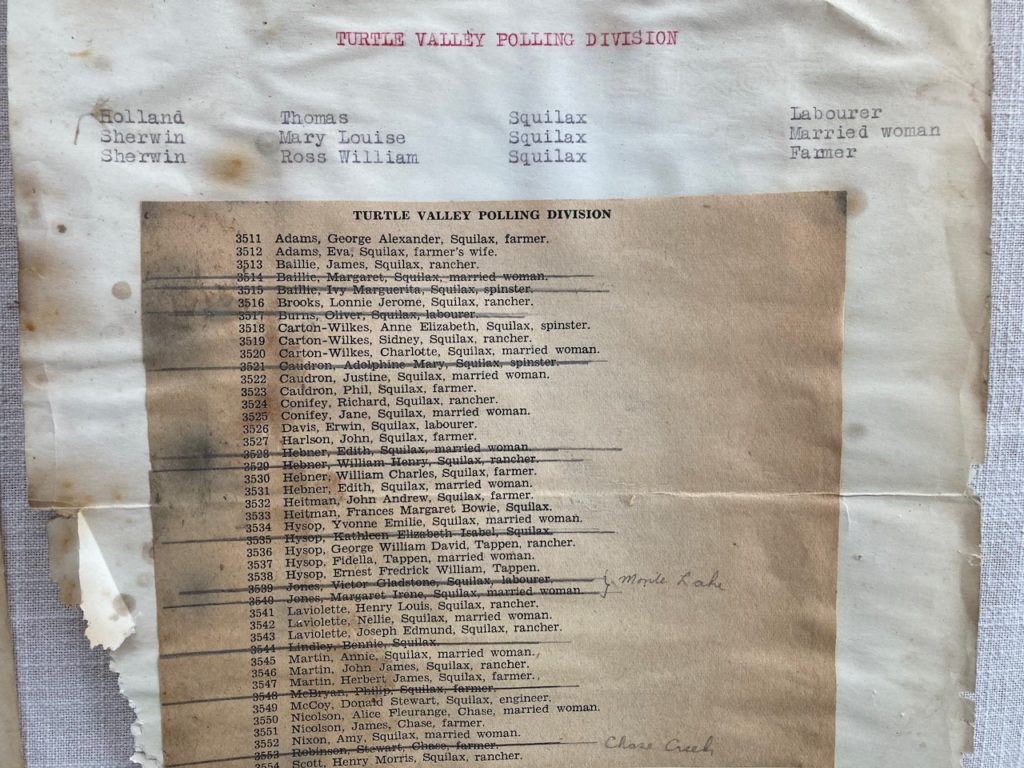
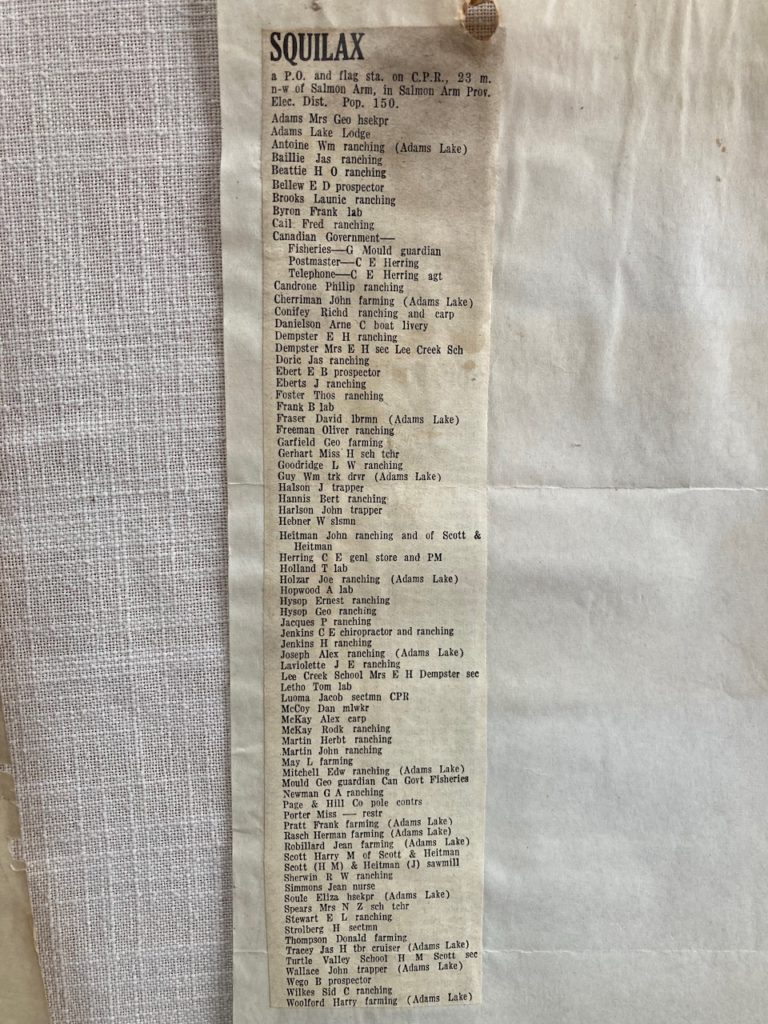
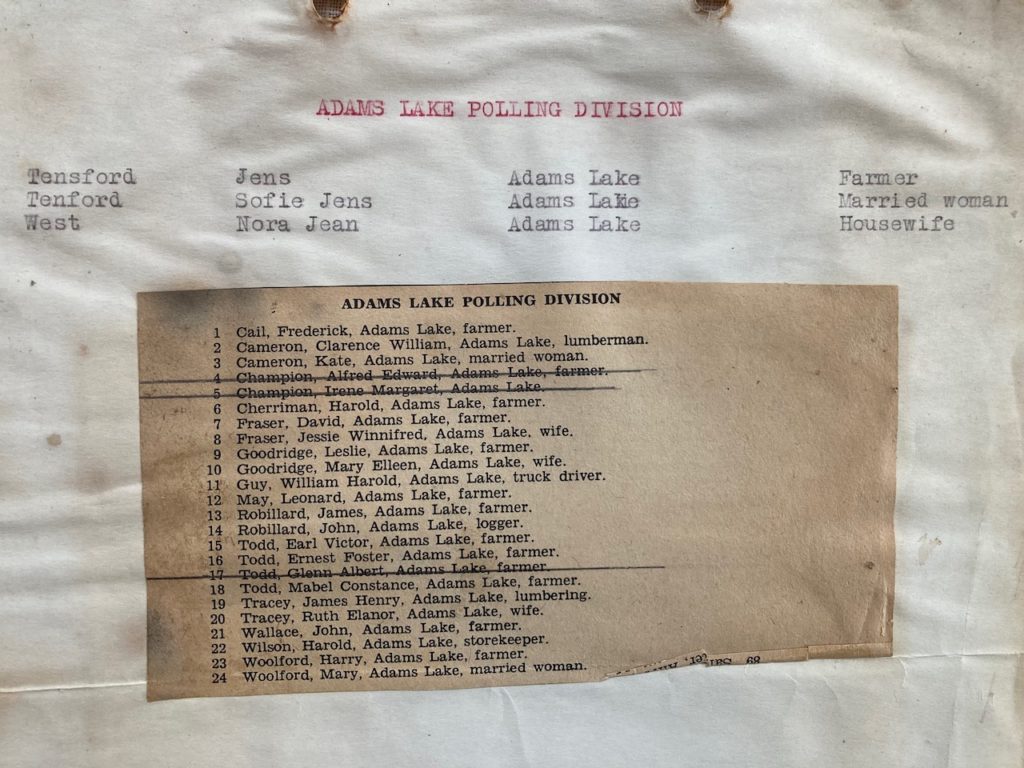
The 1937 letter from Edward Bellew to Cliff Herring:
